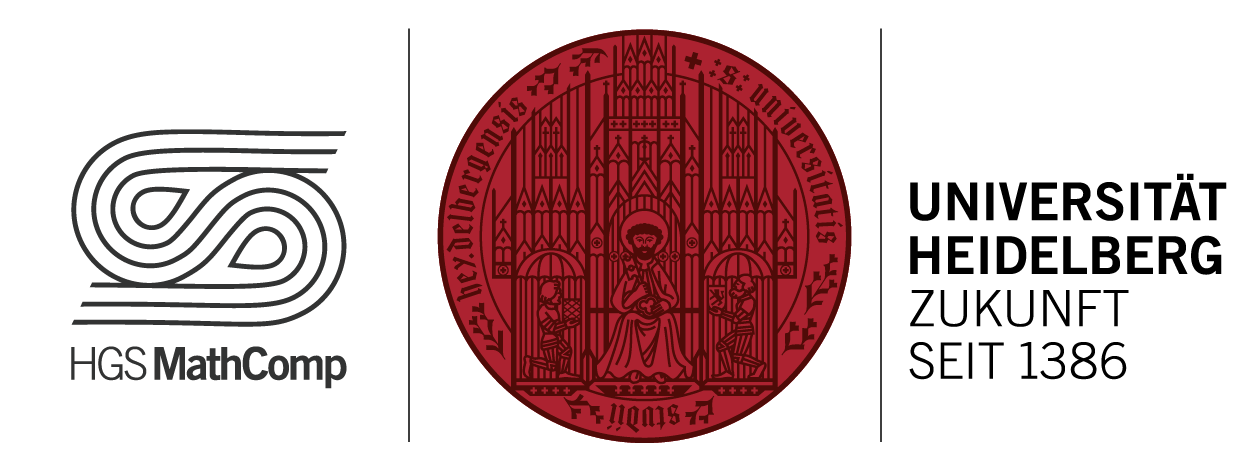HGS MathComp - Where Methods Meet Applications
The Heidelberg Graduate School of Mathematical and Computational Methods for the Sciences (HGS MathComp) at Heidelberg University is one of the leading graduate schools in Germany focusing on the complex topic of Scientific Computing. Located in a vibrant research environment, the school offers a structured interdisciplinary education for PhD students. The program supports students in pursuing innovative PhD projects with a strong application-oriented focus, ranging from mathematics, computer science, bio/life-sciences, physics, and chemical engineering sciences to cultural heritage. A strong focus is put on the mathematical and computational foundations: the theoretical underpinnings and computational abstraction and conception.
HGS MathComp Principal Investigators are leading experts in their fields, working on projects that combine mathematical and computational methodology with topical research issues. Individual mentoring for PhD candidates and career development programs ensure that graduates are fully equipped to take up top positions in industry and academia.
Location: Mathematikon • Conference Room, Room 5/104, 5th Floor • Im Neuenheimer Feld 205, 69120 Heidelberg
Registration: Please register on the event website • Registration open until 15 February 2026
We are happy to announce the Junior Researcher Workshop on stochastic partial differential equations in applied mathematics. The workshop is a joint intiative by doctoral students from Karlsruhe's KCDS and Heidelberg's HGS MathComp and aims to provide young researchers with a smooth introduction to this challenging yet highly relevant topic.
Registration is now open and poster contributions are very welcome!
For more information, please visit the event website.
A central challenge, especially for junior researchers with an interest in the field, is that there is a major gap to overcome from available lecture materials, graduate courses and books to current problems and challenges in applied mathematics for SPDEs. We aim to support doctoral students in closing this gap, growing a network of junior researchers and fostering interdisciplinary collaboration.
09:00 - 13:00
Location: In-Person in Heidelberg
Registration: Please register on the course website
The latest information and a registration link are available on the course website (log in with Uni-ID).
HGS MathComp fellows can get a reimbursement of the course fees. Please submit your proof of payment and certificate of participation to hgs@iwr.uni-heidelberg.de.
The course is structured into two 4 hours sessions:
1. Dive into Blender's interface and learn the essentials of 3D modelling
2. Get comfortable navigating the interface and expand your modelling skills
3. Give your models a realistic finish with textures, lighting, and rendering
14:00 - 16:00
Location: Online
Registration: Please register on the event website
Organizer: 4EU+ European University Alliance
ECTS subject to overall workload completed within the workshop series (please provide certificates after the program).


